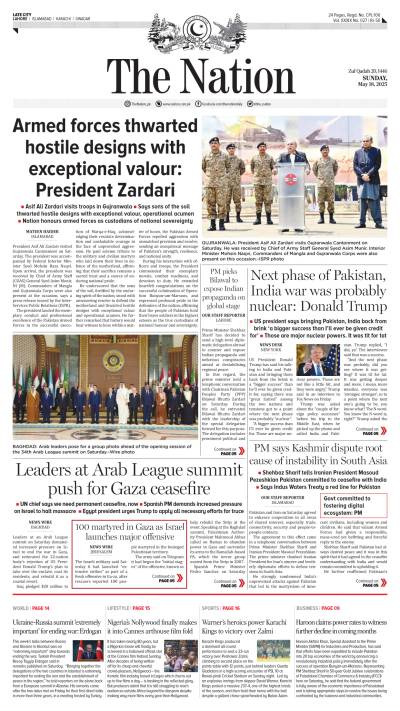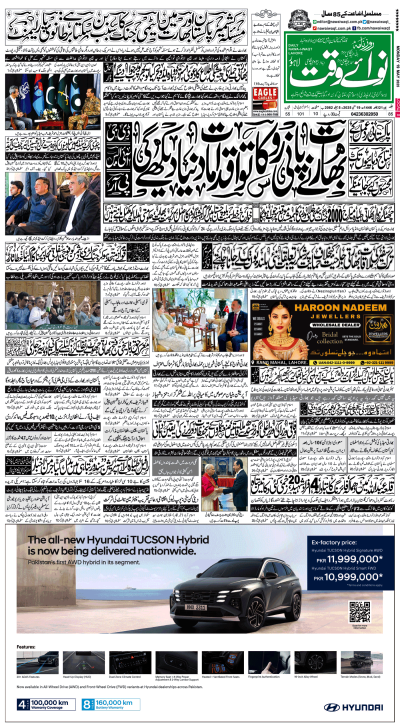As the election fever intensifies and political parties select winnable candidates for each constituency, the religious minorities of Pakistan despite the cosmetic ‘Joint Electorate’ will be confined once again to the sidelines. Though the present electoral laws permit them to vote for candidates in the mainstream national and provincial elections, the choice of reserved minority seats is not theirs and will be at the whims of political party leaders. Once the main elections are over, every political party according to its proportion in the National and Provincial Assemblies will get a list of its share in special seats according to the priority list submitted to the Election Commission prior to the elections. It seems that the non-Muslims of Pakistan will have ‘no say’ in this indirect selection that violates Articles 51 and 226 of the Constitution of Pakistan. The selection process will be discreet and arbitrary based on no democratic practice or principal and casting of secret ballot. This argument also applies to all other special seats including women.
Though many petitions pertaining to the irregularity of the process are pending in the higher judiciary, the courts do not recognise the urgency in correcting the contradictions within the constitution in violation of the above mentioned Articles and the fundamental rights of its citizens; nor has any political party shown the moral inclination to come to the assistance of its fellow non-Muslim citizens. Pathetically and as a slur, the political parties failed to display any intent and desire to correct these imbalances amply demonstrated by the treatment meted out to religious minorities in the 18th Amendment, in the ironic name of national reconciliation. It is also sad that political parties that boycotted the 2008 elections have never raised their voice for these marginalised citizens.
Lost in the quest of winning candidates, political parties across the board have neither the time, nor the intent to address the issues in the larger interests of ‘diversity as strength’ and ‘nation building’. Quaid-i-Azam Mohammad Ali Jinnah’s ‘constitutional guidelines’ of August 11, 1947, lie buried in the debris of ‘opportunist constitutionalism’ and repeated ‘inventive nationalism’ that does not treat religious minorities at par with the majority community. Yet, as a silver lining, it is still possible to redress many imbalances under the aegis of the political parties, the Election Commission of Pakistan and the higher judiciary.
There remains a very strong feeling amongst the non-Muslim communities that the reluctant restoration of the Joint Electorate in 2002 was at best a cosmetic exercise to prove to the world the essentials of ‘political pluralism’. It had taken the resignation of Late Derek Cyprian, a Federal Minster to force the Musharraf government to adopt the Joint Electorate. At worst, it maintains the political intent in alienating religious minorities at the cost of ‘yes-men’ ready to serve their political masters. In essence, it is an exercise that enables political parties to select those to special seats that neither represent their real constituencies, nor gel with their people at the grass roots. In Punjab, it has been exploited to grab church properties through selected representatives.
Moreover, unlike the separate electorates wherein religious communities were proportionally represented, the new rules hold no such bars resulting in an imbalance in Parliament. Right now, out of the 10 seats in the National Assembly, eight are occupied by Hindus and two by Christians. In the Senate, only one Christian member is selected against three Hindus. In actual census, both religions are almost equal in population. The unrepresentative character gets more pronounced when one notices that most of the members selected from Punjab are Christians from Faisalabad, neglecting other areas of the province and the Hindus. The same also applies to selection of Hindus from Sindh at the cost of Christians.
Though the 1998 census puts the religious minorities of Pakistan at 3.86 percent, the population today can be estimated at 6,665,093. Yet, considering the demographic spread, the analysis of the electoral rolls and past elections, depict an entirely different picture. Christians varying from 6-2 percent of the population are mostly concentrated in Islamabad, Lahore, Faisalabad, Sheikhupura, Gujranwala, Sialkot, Kasur, Sahiwal, Khanewal, Narowal, Rawalpindi, Karachi and Quetta. The major concentrations of Hindus are in Tharparkar, Umerkot, Mirpur Khas, Sanghar, Hyderabad, Badin, Ghotki, Jacobabad, Sukkur, Karachi, Dadu, Nawabshah, varying from 48 percent to 2 percent of the population. Converted into electoral constituencies, the conclusions are surprising.
There are 98 National Assembly seats where the non-Muslim votes, according to ECP lists of 2012, are more than 10,000. Of these, 58 are in Punjab, 37 in Sindh and one each in Islamabad, Quetta and Peshawar. In Sindh, the non-Muslim voters dominate in areas like Tharparkar, Umerkot and Mirpur Khas. There are three national constituencies in Pakistan where the votes of non-Muslims are more than 100,000. Eight National Assembly constituencies vary from 50,000-99,999,12 from 25,000-49,999, and 75 constituencies whose votes vary from 10,000-24,999 votes. This means that given an opportunity, the non-Muslims are capable of fielding candidates on general seats and capable of winning them in approximately 10 seats all over Pakistan; provided the political parties show the conviction and courage of fielding them. Alternatively, if properly utilised, they have the capability in these constituencies to swing results.
In another finding, in the 2002 elections, there were 82 national constituencies where the victory margin was less than the votes of non-Muslims. In 2008, this figure dropped to 59 mainly because the non-Muslim voters did not trust the electoral process. This means that the system does not enjoy their confidence. The political parties vying to win elections in these 98 constituencies have a choice to tap this potential or consign them to seclusion.
In the unkindest cut of all, even if the non-Muslims join political parties, the effort notwithstanding their qualifications, capabilities and services to the nation is to confine them to minority roles. The mental inertia that inhibits the bureaucracies of political parties and their leaders is far too strong to cut across self-created exclusive divides and open doors to diversity and exclusivity.
On their part, the non-Muslim communities in Pakistan also stand divided on religious and narrow self-centred basis. This divide is exploited by the political parties in their own numerical interests. Consequently, while there is a proliferation of selected and self-proclaimed community and prayer leaders, there is no cohesion in the ranks of non-Muslims to challenge the status quo through a unified concerted effort. Most, feeling disgusted and discouraged, take refuge in the many civil rights organisations and NGOs that operate as part of the civil society for the redress of grievances and political discrimination. This puts the issues related to religious minorities in international limelight, but unworthy of drawing the attention of political elites.
Elections 2013 are an opportunity wherein many imbalances in the system can be addressed through real co-option of the non-Muslims in the electoral process. This article should serve as a guide to all political parties and minority leaders to exploit the vast potential in ‘political pluralism’ to make credible changes in the electoral process and subsequent constitutional amendments. It is also time for the ECP and superior judiciary to address many petitions that lie at their doors and pass rulings based on the true spirit of the Constitution of Pakistan, before the elections are finally announced.
Note: All statistics are taken from Mr George Clement, former MNA, and Study on ‘Religious Minorities of Pakistan’ sponsored by Church World Services Pakistan/Afghanistan.
The writer is a retired army officer, current affairs host on television and political economist. Email: samson.sharaf@gmail.com
Monday, May 19, 2025
Elections and religious minorities
-
Lahore emerges among safest global cities in Numbeo 2025 index
-
Lahore emerges among safest global cities in Numbeo 2025 index
-
India’s suspension of Indus Water Treaty legally baseless
-
Seventh polio case reported in Pakistan amid nationwide vaccination drive
-
Pakistan reports sixth polio case of 2025
-
PTA begins issuing VPN licences to regulate usage
Culture Shift
May 18, 2025
Tactical Shift
May 18, 2025
Unmasked Cruelty
May 18, 2025
India Isolated
May 17, 2025
Descent into Hell
May 17, 2025
Pakistan’s Strategic Edge
May 19, 2025
Lessons for India
May 19, 2025
Galiyat’s Poor Network Services
May 19, 2025
A City in Neglect
May 19, 2025
Rising Cost of Living
May 19, 2025
ePaper - Nawaiwaqt
Nawaiwaqt Group | Copyright © 2025





